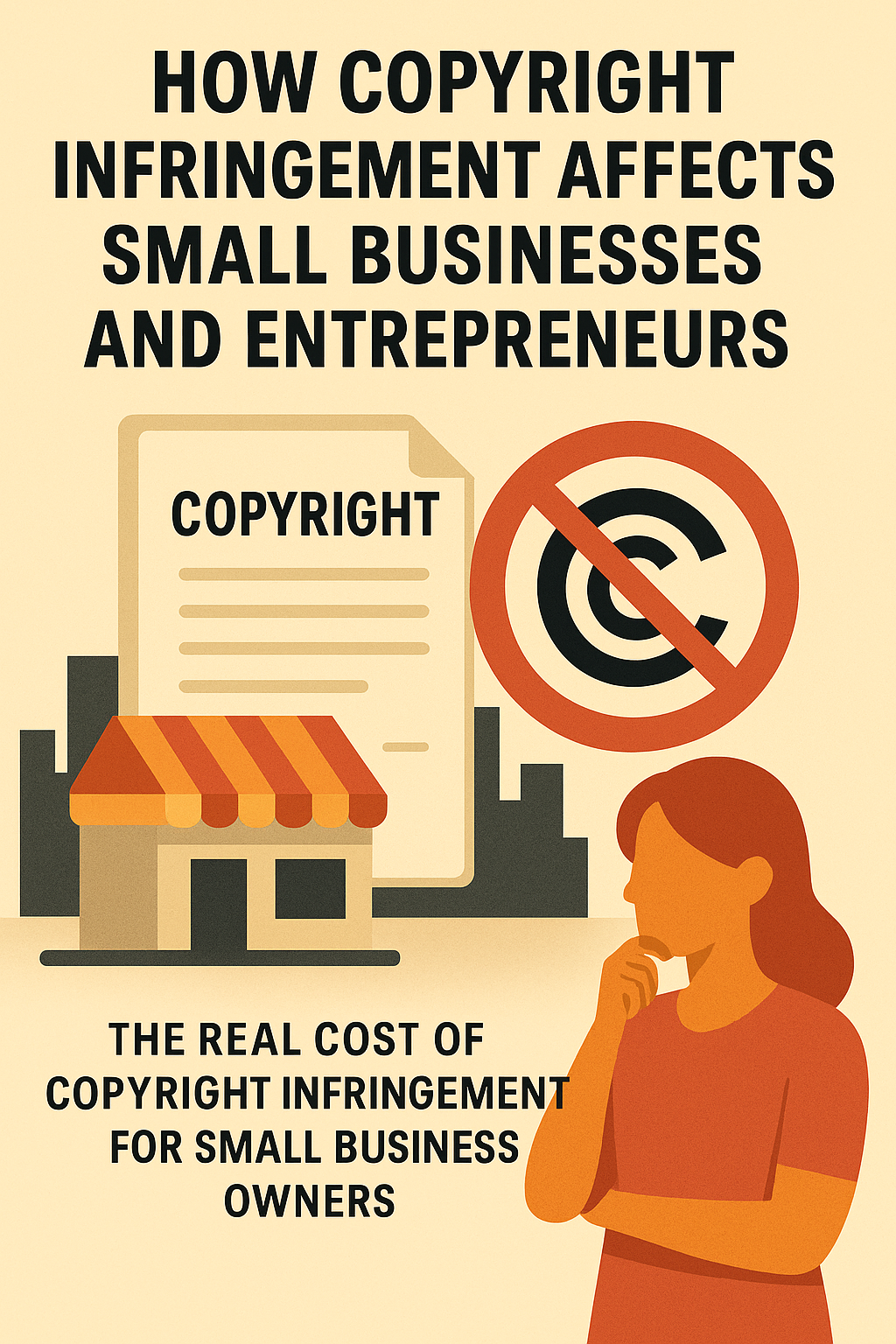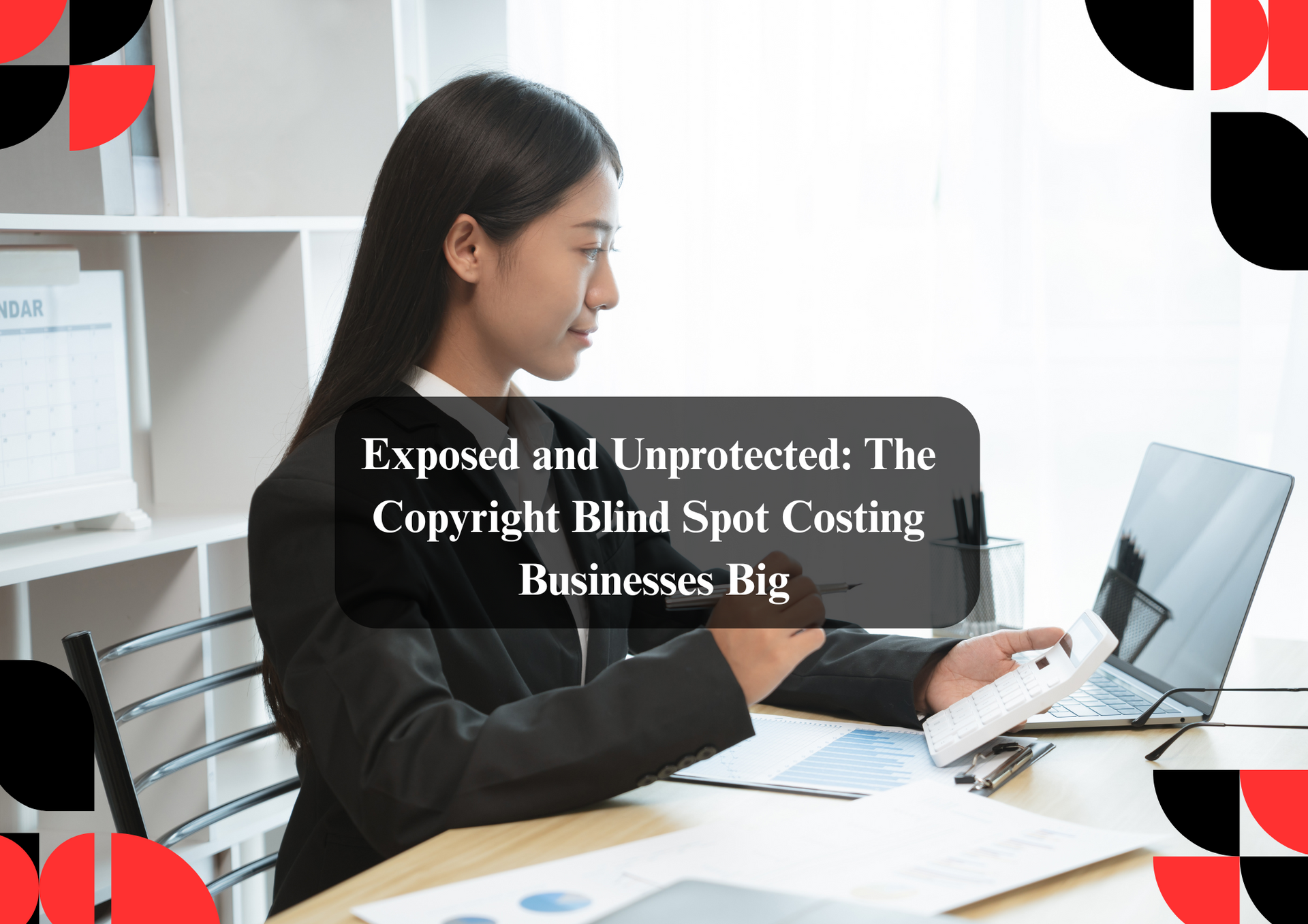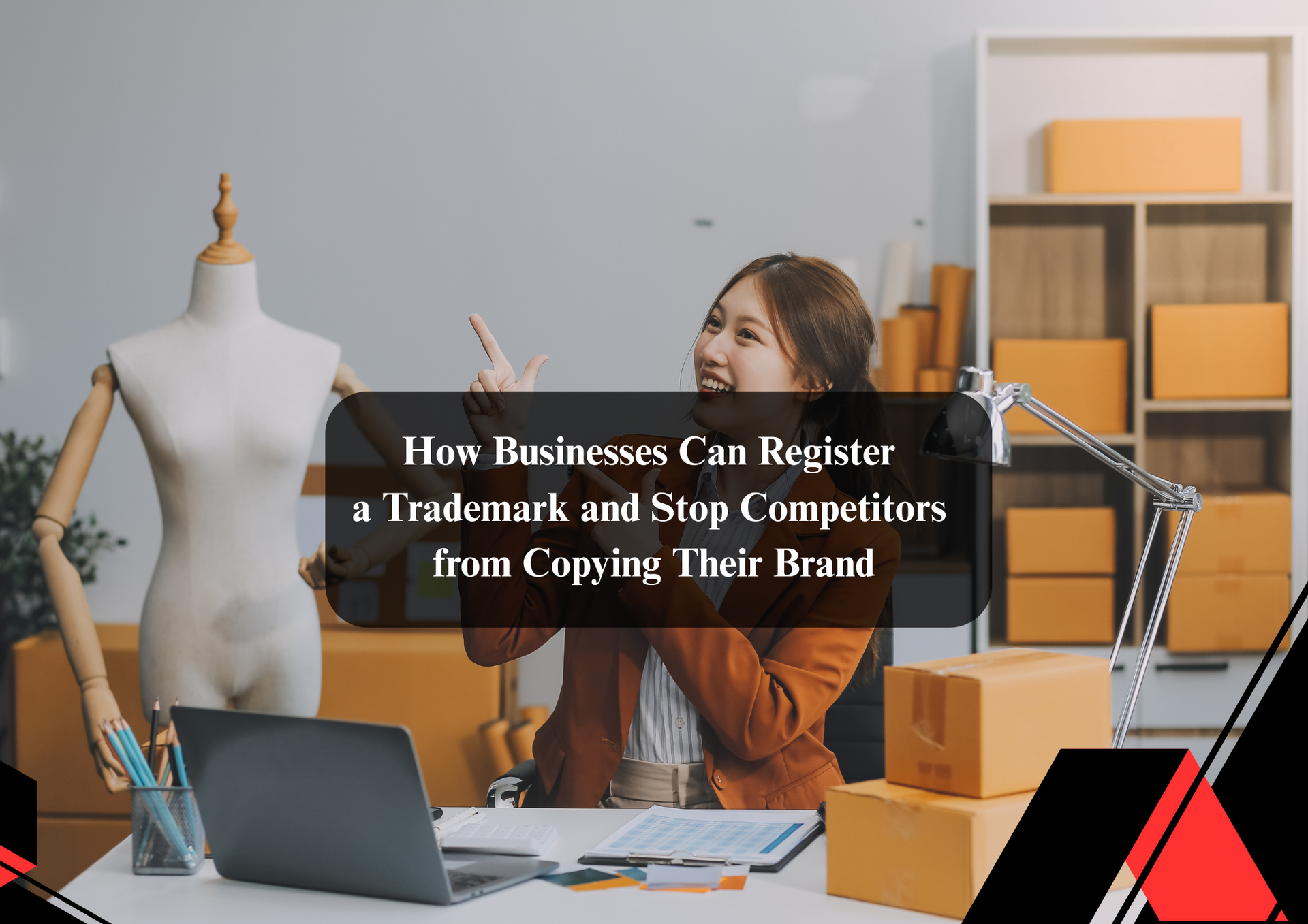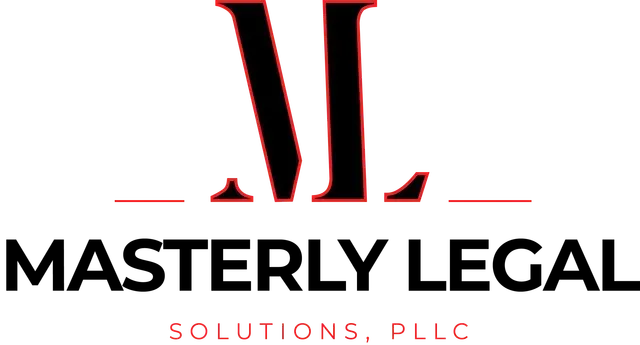How Copyright Infringement Affects Small Businesses and Entrepreneurs
The Real Cost of Copyright Infringement for Small Business Owners
For small businesses and entrepreneurs, a single act of copyright infringement can disrupt operations, damage brand reputation, and result in serious financial consequences. At Masterly Trademarks, we understand how vulnerable startups and creative professionals are in the digital economy. With digital content becoming the lifeblood of many businesses, safeguarding your intellectual property is no longer optional—it’s essential.
When Someone Else Uses Your Content Without Permission
Whether it’s unauthorized copying of your website images, sound recordings, or entire blog posts, infringement can steal more than just your words—it can hijack your revenue. For many digital content creators, original work is a key source of leads, clients, and income.
Common examples include:
- Competitors reposting content without attribution
- Pirated computer programs or design files shared on torrent sites
- Stolen product images used in counterfeit online shops
This unauthorized use disrupts your ability to grow and compete fairly.
How Infringement Hurts Revenue Streams
Copyrighted work often represents revenue generating content. Whether you sell streaming services, offer tutorials, or publish photography, someone else using your work without permission devalues your product.
Lost revenue occurs through:
- Clients choosing the free version over your paid content
- Unauthorized distribution on unmonitored platforms
- Dilution of your brand authority and online visibility
Every stolen piece of content chips away at your long-term business goals.
Digital Piracy Targets Entrepreneurs
Digital piracy isn’t just a corporate problem. Small business owners with valuable digital files and audio files are just as exposed. Pirates often target smaller companies because they're perceived as having weaker enforcement capabilities.
Your work could be found on illegal sharing platforms or passed between users in closed communities. Worse yet, if you’re unaware of this distribution, you may not even realize the extent of the damage.
Protecting Digital Assets with DRM Technologies
This is where digital rights management (DRM) becomes vital. DRM enables content owners to restrict access and control access to their materials. By embedding drm software into your products, you ensure that only authorized users can open, share, or download the content.
Key benefits of DRM tools include:
- Prevention of unauthorized usage and duplication
- Online authentication to verify legitimate users
- Integration with enterprise rights management systems
These protections help you protect digital media while complying with data privacy regulations and data protection regulations.
Risks of Ignoring DRM Protection
Without drm protection, your business faces:
- Exposure to unauthorized users who redistribute your files
- Non-compliance with data security laws
- Higher chances of personally identifiable information breaches through shared content
Small businesses also need to worry about competitors circumventing protections using drm circumvention methods. Once a decryption key is leaked, your content becomes vulnerable to mass exploitation.
DRM Tools for Small Business Use
You don't need enterprise-level tools to secure your assets. Many drm solutions now cater to smaller operations. These tools allow you to:
- Manage access with user roles
- Apply drm restrictions to PDFs, videos, and more
- Monitor ip addresses of those accessing files
For digital content such as eBooks, reports, training modules, and design templates, a small investment in DRM tools can offer significant protection.
Copyright Infringement and Customer Trust
When your work is stolen and distributed, it affects your relationship with clients. Customers lose trust if your products are found elsewhere for free, or if their customer data becomes exposed through hacked files.
Failing to implement copyright safeguards signals:
- A lack of professionalism
- Poor data protection practices
- Weak commitment to intellectual property rights
This can deter future partnerships and reduce repeat business.
How Copyright Infringement Creates Legal Problems
Beyond revenue loss, unauthorized usage of your work can spark legal action. Your ability to seek compensation depends heavily on your copyright status.
Legal consequences include:
- Inability to enforce rights without proper registration
- Difficulty proving ownership without public record from the copyright office
- Risk of non-compliance with the Digital Millennium Copyright Act (DMCA)
A solid legal foundation includes copyright registration, license agreements, and DRM integration.
Copyright Laws Every Entrepreneur Should Know
Understanding copyright laws empowers entrepreneurs to act decisively. These laws protect your work the moment it’s created and fixed in a tangible form. But to fully enforce those rights, you must go beyond creation.
Copyright owners benefit from:
- Filing registrations with the copyright office
- Retaining evidence of creation dates
- Limiting access through drm systems
Stay proactive by managing and enforcing your rights.
DRM Helps Organizations Protect Confidential Information
Many entrepreneurs also handle sensitive information like contracts, pricing sheets, or confidential files. Losing control of these documents can result in violations of data privacy regulations.
DRM helps organizations:
- Track who accesses documents
- Prevent unauthorized sharing
- Secure sensitive documents with access control
These steps minimize legal exposure and increase customer confidence.
Entrepreneurs and Digital Rights Management in Practice
Let’s say you’re a coach offering paid digital courses. Using drm technologies, you can ensure only paying users can download videos. If a legitimate user tries to share the material, your system can flag or block the behavior.
DRM also helps you:
- Monitor downloads across different regions
- Integrate with platforms like Apple Music or private streaming sites
- Issue custom drm codes that expire after a set time
This lets you scale your content distribution without sacrificing security.
Unauthorized Use of Your Materials by Competitors
Your competitors might be using your content in:
- Promotional campaigns
- Training resources
- Their own product descriptions
You must take immediate action when you discover unauthorized copying. This includes sending takedown notices, notifying the copyright holder, and contacting legal counsel.
What to Do if You’ve Been Infringed
If someone is using your work illegally:
- Verify your copyright registration
- Gather proof of unauthorized usage
- Monitor for ongoing infringement
- Consult a trademark law firm
You may be entitled to damages or removal of the content under U.S. copyright law.

The Role of Digital Asset Management
In tandem with DRM, digital asset management (DAM) organizes and protects your files. With a DAM system, you can:
- Store all your digital content securely
- Track usage rights for each item
- Implement layered drm restrictions
This is especially useful for businesses producing large volumes of media and entertainment assets.
How to Restrict Access Without Sacrificing User Experience
Users expect seamless experiences. With modern drm software, it’s possible to restrict access without slowing down delivery.
Use tools that:
- Support fair use exceptions
- Offer guest access with limited permissions
- Integrate with your ecommerce checkout
This allows you to balance security with customer satisfaction.
Managing License Agreements for Protection
Don’t forget the role of license agreements. These contracts define how others may use your content, and enforce drm restrictions on top of it.
Effective agreements:
- Clearly outline authorized users
- Include penalties for unauthorized distribution
- Require acceptance before download
Pair contracts with DRM for layered legal security.
Monitoring DRM Activity with Reports
Most drm tools offer a drm report feature. This helps you:
- Track file usage patterns
- Identify suspicious downloads
- Assess data security vulnerabilities
Analyzing this data ensures your protections remain effective over time.
DRM-Free Isn’t Always a Safe Option
Some creators opt for drm free distribution to avoid customer friction. But this leaves your work open to unauthorized copying and piracy.
When using DRM-free models, consider:
- Adding watermarks
- Requiring account-based downloads
- Limiting access with manual review
If your content is core to your income, DRM is the safer route.
How Entrepreneurs Can Respond to Infringement Quickly
Speed matters in protecting your assets. Once you detect misuse:
- File a DMCA takedown
- Use platforms’ access control tools
- Update your DRM settings to block suspicious users
Fast action minimizes long-term damage.
Safeguarding Copyrighted Material in High-Risk Industries
Small businesses, particularly those in creative sectors like media and entertainment companies, face increasing threats from online piracy and software piracy. These industries often handle a high volume of copyrighted material that includes videos, music, designs, and proprietary applications—all of which can be easily stolen or duplicated without proper copyright protection in place. Infringement not only undermines brand value, but it can also expose sensitive data if secure files are compromised during distribution or unauthorized access.
Strong legal strategies, combined with digital tools, enable content creators to retain control over their assets, maintain customer trust, and minimize the risks of exploitation. For small teams and startups, enforcing protections early is critical to preserving both growth and reputation in competitive markets.
When to Contact a Copyright Infringement Attorney
If you discover your content has been copied, distributed, or used without your permission, it’s time to consult a copyright infringement attorney. Small businesses often underestimate the legal tools available to them until it's too late. A skilled attorney not only helps enforce your rights but also guides you through essential processes such as takedown notices, cease and desist letters, and legal claims for damages. Working with legal counsel can dramatically improve your chances of recovering lost revenue and deterring future infringement. Don't wait for the damage to escalate—proactive legal support is your strongest defense in today’s digital economy.
How to Avoid Copyright Infringement as a Small Business Owner
Understanding how to avoid copyright infringement is crucial for small businesses and entrepreneurs who use third-party materials in marketing, products, or services. Always verify the source and licensing terms before using any image, music, software, or written content. This includes checking usage rights for stock assets and obtaining proper permission through license agreements when needed. Creating original content or working with professionals who guarantee rights clearance reduces risk significantly. Educating your team on copyright basics and relying on a trademark law firm for guidance can help you steer clear of costly legal missteps and protect your business from unintended violations.
Contact Masterly Trademarks Today
If your digital work is the core of your brand, protecting it should never be an afterthought. At Masterly Trademarks, we help small businesses and entrepreneurs secure their creative output with powerful copyright strategies and smart digital protections. From digital rights management to copyright registration and enforcement, our team is ready to help you defend what you've built.
Contact us at (972) 236-5051 for your free consultation. Whether you're battling infringement or building proactive defense, we’re here to help you secure your future. Don’t let digital theft compromise your vision—reach out today and gain a trusted legal partner.
You might also like



